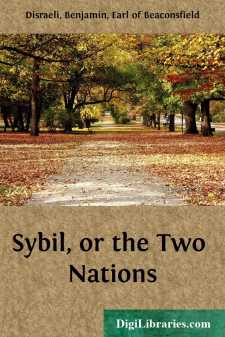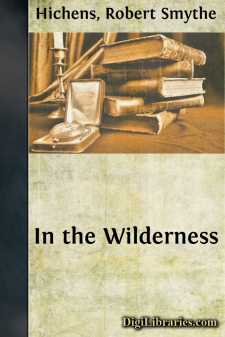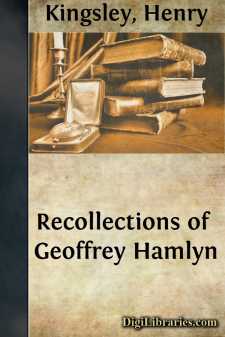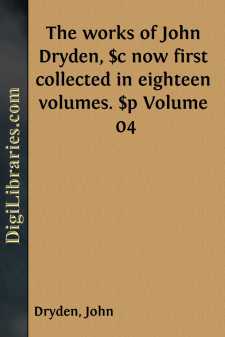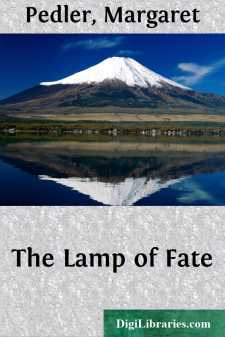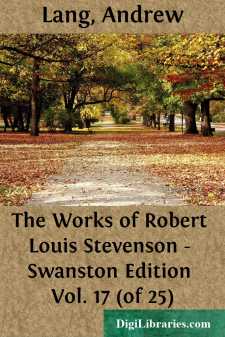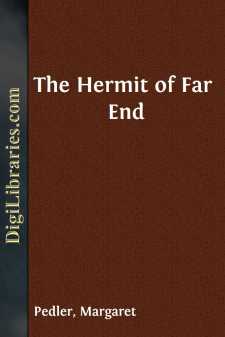Literary Collections
- American 84
- Ancient, Classical & Medieval 14
- Asian 1
- Australian & Oceanian 1
- Canadian 55
- Continental European 121
- English, Irish, Scottish, Welsh
- Essays 160
- General 24
- Letters 46
- Middle Eastern 1
English, Irish, Scottish, Welsh Books
Sort by:
Book 1 Chapter 1 "I'll take the odds against Caravan." "In poneys?" "Done." And Lord Milford, a young noble, entered in his book the bet which he had just made with Mr Latour, a grey headed member of the Jockey Club. It was the eve of the Derby of 1837. In a vast and golden saloon, that in its decorations would have become, and in its splendour would not have disgraced,...
more...
CHAPTER I Amedeo Dorini, the hall porter of the Hotel Cavour in Milan, stood on the pavement before the hotel one autumn afternoon in the year 1894, waiting for the omnibus, which had gone to the station, and which was now due to return, bearing—Amedeo hoped—a load of generously inclined travelers. During the years of his not unpleasant servitude Amedeo had become a student of human nature. He had...
more...
by:
Henry Kingsley
INTRODUCTORY. Near the end of February 1857, I think about the 20th or so, though it don't much matter; I only know it was near the latter end of summer, burning hot, with the bushfires raging like volcanoes on the ranges, and the river reduced to a slender stream of water, almost lost upon the broad white flats of quartz shingle. It was the end of February, I said, when Major Buckley, Captain...
more...
by:
John Dryden
THE CONQUEST OF GRANADA. This play,—for the two parts only constitute an entire drama betwixt them,—seems to have been a favourite with Dryden, as well as with the public. In the Essay upon Heroic Plays, as well as in the dedication, the character of Almanzor is dwelt upon with that degree of complacency which an author experiences in analyzing a successful effort of his genius. Unquestionably the...
more...
by:
Margaret Pedler
CHAPTER I THE NINTH GENERATION The house was very silent. An odour of disinfectants pervaded the atmosphere. Upstairs hushed, swift steps moved to and fro. Hugh Vallincourt stood at the window of his study, staring out with unseeing eyes at the smooth, shaven lawns and well-kept paths with their background of leafless trees. It seemed to him that he had been standing thus for hours, waiting—waiting...
more...
by:
William Carleton
CHAPTER I.—A strong Farmer's Establishment and Family. It was one summer morning, about nine o'clock, when a little man, in the garb and trim of a mendicant, accompanied by a slender but rather handsome looking girl about sixteen, or it may be a year more, were upon their way to the house of a man, who, from his position in life, might be considered a wealthy agriculturist, and only a step...
more...
by:
Andrew Lang
THE SURNAME OF STEVENSON From the thirteenth century onwards, the name, under the various disguises of Stevinstoun, Stevensoun, Stevensonne, Stenesone, and Stewinsoune, spread across Scotland from the mouth of the Firth of Forth to the mouth of the Firth of Clyde. Four times at least it occurs as a place-name. There is a parish of Stevenston in Cunningham; a second place of the name in the Barony of...
more...
by:
Andrew Lang
CHAPTER I THE ELEMENTS OF DISCORD: NATIVE The story I have to tell is still going on as I write; the characters are alive and active; it is a piece of contemporary history in the most exact sense. And yet, for all its actuality and the part played in it by mails and telegraphs and iron war-ships, the ideas and the manners of the native actors date back before the Roman Empire. They are Christians,...
more...
by:
Margaret Pedler
PROLOGUE It was very quiet within the little room perched high up under the roof of Wallater's Buildings. Even the glowing logs in the grate burned tranquilly, without any of those brisk cracklings and sputterings which make such cheerful company of a fire, while the distant roar of London's traffic came murmuringly, dulled to a gentle monotone by the honeycomb of narrow side streets that...
more...
THE COURTING OF T'NOWHEAD'S BELL, By J. M. Barrie For two years it had been notorious in the square that Sam'l Dickie was thinking of courting T'nowhead's Bell, and that if Little Sanders Elshioner (which is the Thrums pronunciation of Alexander Alexander) went in for her, he might prove a formidable rival. Sam'l was a weaver in the tenements, and Sanders a coal-carter,...
more...


